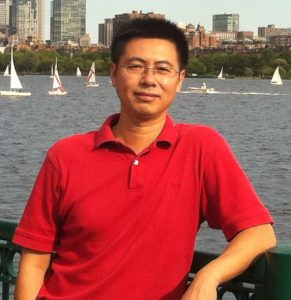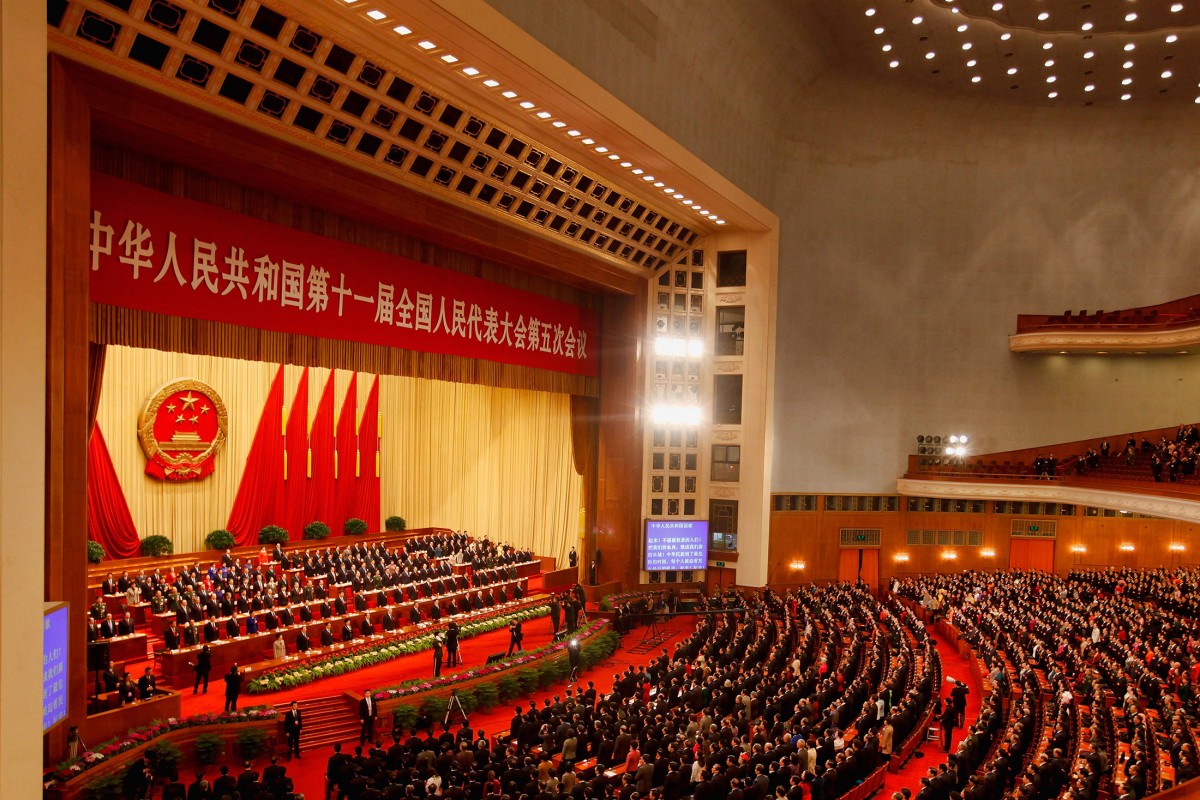Memo #382
By: Zhenhua Su – suzh [at] zju.edu.cn, Yanyu Ye, Jingkai He and Waibin Huang – huangwb [at] zucc.edu.cn

In a political system, trust is of great importance for both legitimacy and effectiveness. A government with low levels of political trust will be more likely to face difficulties in finding public support for and a higher likelihood of public opposition against its policy initiatives, hence less likely to be successful in carrying out its aims. The Chinese government has long received a higher level of popular trust in its central authority than in its local governments, which some scholars call “hierarchical government trust.” What explains this phenomenon in China?
Hierarchical government trust is not unique to China. In Asian countries such as Vietnam and Malaysia, the public also generally find their respective central governments more trustworthy than local governments, whereas the reverse pattern can be found in United States of America, Taiwan, South Korea and Japan. Such variations in patterns of political trust correlates to regime type: authoritarian regimes such as China, Vietnam and Malaysia have central governments outperforming local ones and citizens in democracies such as Taiwan and Japan see just the opposite.
Among studies of China, existing analyses identify three sources of political and hierarchical trust: economic development, cultural traditions and propaganda. But increasing evidence points to the relative importance propaganda transmitted through medium such as television and the Internet. Economic modernization and Chinese deference to cultural traditions, in comparison, do not appear to significantly contribute to hierarchical government trust. Thus, hierarchical government trust in China is a phenomenon produced by the central government through propaganda and institutional design.
By maintaining hierarchical trust, the central government aims to boost its own authority, deflect popular discontent toward local governments, resolve social conflicts, reinforce central control of subordinate governments, and ultimately maintain the regime’s stability. While it is possible to predict hierarchical government trust will gradually diminish as economic development continues and more frequent use of the Internet in China fuels a more diverse range of political views, hierarchical trust remains a central tool, along with more visible censorship policies, for the Chinese central government’s rule.
About the Authors:
Zhenhua Su is an associate professor in the College of Media and International Culture, Zhejiang University, China. His primary research fields include political development, democratization, contentious politics, and political communication. His works have appeared in some international journals such as Journal of Democracy, Asian perspective, African and Asian Studies and in a number of leading Chinese academic journals.
Yanyu Ye is a PhD candidate in the School of Public Affairs at Zhejiang University, China. Her research fields are social change and democratization.
Jingkai He is a PhD candidate in the Department of Government at Harvard University. His primary research field is comparative politics, with specific interests in authoritarian regimes, political parties, and formal and informal political institutions. His work has been published in Journal of Democracy and African and Asian Studies.
Waibin Huang is an assistant professor in the Department of Statistics, Zhejiang University City College, China. His recent research focuses on quantitative methods and social statistics.

The National People’s Congress, 2016. (Credit: Lintao Zhang/ Getty Images via Bloomberg)

A People’s Liberation Army soldier standing guard in Tiananmen Square before a portrait of former Chinese leader Mao Zedong, 2016. (Credit: Qilai Shen via Bloomberg)
Links
- Zhenhua Su, Yanyu Ye, Jingkai He, and Waibin Huang, “Constructed Hierarchical Government Trust in China: Formation Mechanism and Political Effects,” Pacific Affairs 89, no. 4 (December 2016), forthcoming issue.
- Lianjiang Li, “Reassessing Trust in the Central Government: Evidence from Five National Surveys,” China Quarterly 225,no.1 (2016): 100-121.
- Wenfang Tang, Populist Authoritarianism: Chinese Political Culture and Regime Sustainability (Oxford: Oxford University Press, 2016).
- Lianjiang Li, “Hierarchical Government Trust,” Twenty-first Century Bimonthly 131, no. 6 (2012): 108-114. (Chinese). 李连江, <差序政府信任>,《二十一世纪》, no.6 (2012):108-114.
- Tianjian Shi, “China: Democratic Values Supporting an Authoritarian System,” in How East Asians View Democracy, eds. Yun-han Chu, et al. (New York: Columbia University Press, 2008), 209-237.
Related Memos:
See our other memos on China.
This makes a hell of a lot of sense. It’s one of those things which, once noticed, seems obvious. The received wisdom, handed on from expert to expert, that there is a “compact” in China btw government and people, that while economic growth continues dissent wil remain muted, is not total rubbish, but it is simplistic. A similar phenomenon, recognized as a belief in a benevolent Tsar, has existed in Russia for centuries. Even at the height of the centrally directed brutality of the Stalin years, a lot of people believed that it was all caused by vicious, local underlings, and that if Comrade Stalin only knew, he would fix it.
The idea that, as the Chinese populace becomes more sophisticated it will mentally break free, probably has merit. However, the relationship btw worldly sophistication and independence of thought should not be considered as mechanical, not transduced in direct proportion. Rather, there are a range of almost imponderables which stand as intermediaries.
Again, take Russia. Although it would perhaps surprise some, the Russian population is, by any measure of central tendency, more affluent than that of China, and the political milieu of Russia far more open than China’s. However, the current Kremlin regime has almost effortlessly succeeded in nullifying a really significant, if disparate, level of opposition, somewhat like taking the proverbial away from a proverbial. For many, this has been both deflating and mystifying.
The roots are various. Plainly there is a cultural-historical factor. In part, there is an agonistic component. Especially among those of the malleable middle ground, those who felt an inchoate, poorly defined hostility toward the regime, but hadn’t put together any serious analysis, when they saw the visible elements of the opposition easily knocked over, their derision for the government easily transferred to the opposition. They became firstly neutral to the government itself, and later joined its supporters. This is a phenomenon especially strong in, but not exclusive to, Russia.
Another factor is objective isolation, firstly by language and geography, but also, as indicated in the memo, by the long-term maintenance of a profound propaganda environment, beginning at school and enveloping the whole of society. I have seen this extensively in Russia and seen enough of it in China to understand that it is generally worse there, especially today.
Skipping straight to a Chinese example, once I was on a train, in a non-smoking carriage where a lot of my fellow passengers were chain-smoking. I expressed some disappraval, of a bantering sort, to that. My tobacco-addicted comrades pointed out that Chairman Mao had been a smoker and he was a great bloke. Though my vocabulary did not extend to the precise expression of the thought, I endeavoured to get across the idea that CM had been a monstrous fascist who had directly or indirectly killed at least 30 million of his own people. A young, educated man, hitherto a bystander, joined in to ask, in a pitying tone, if I really believed that. I’m sure he considered himself world-aware and of cosmopolitan predilections, but I doubt he had ever read anything of substance not approved by the CCP.
Beyond pure propaganda, there is identification. That is especially the case in Russia, where after a millennium of autocracy, a nine-month gestation brought forth a still-born revolution and seventy years of Soviet fascism. That was met with civil war, then sullen, silent non-cooperation from the peasant masses, but the opposition was eventually broken. People came to accept the identification of the regime with the people. Practically everyone in Russia has – had – relatives who suffered pointless, stupid repression by the dictatorship, but they have mostly either rationalised it or quarantined it in their minds. Of the two grandfathers of my closest friend in Russia, one was interned in the labour camps for one year, the other for ten. He doesn’t believe they had committed any crime, but he is an ardent believer in the Soviet Union and wants it restored, although he must know that, with his lifestyle and connections with the world, he would not have survived Stalin’s rule.
Closely connected with the idea that the regime IS China is the protean challenge of nationalism and the circumstance that the CCP is at leisure to shape both its reception by the people and its expression. I say protean because, really, it goes potentially beyond the scope of the Chinese people negotiating its exit from dictatorship. It could pose a problem for China, and a bigger problem for the world, for long after the PRC has passed into history. Just consider Myanmar. The long-suffering, incarcerated champion of democracy finally is liberated and attains power, and it turns out that at some level she is a national chauvinist. Well, wodiya know? Who woulda thought? We should have at least anticipated that as a possibility.